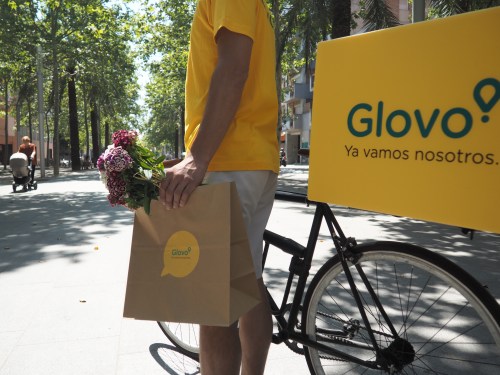Spanish Labor Ministry Slams Glovo with Record Fine
Glovo, the on-demand food delivery platform owned by Delivery Hero, has been hit with a record fine of €79 million by Spain’s labor ministry. The penalty is in relation to allegations that the company misclassified its couriers as self-employed rather than employees.
Misclassification: A Growing Concern for Gig Economy
The misclassification of workers as self-employed rather than employees has become a growing concern for governments around the world, including the European Union. This issue arises from the fact that platforms like Glovo often classify their delivery personnel as independent contractors, rather than employees, to avoid paying them benefits and social security contributions.
EU’s Plan to Tackle Misclassification
The European Union is in the process of hammering out agreement on draft legislation aimed at tackling bogus self-employment on digital platforms. The proposed framework would introduce a rebuttable presumption of employment, making it easier for workers to prove that they are employees rather than independent contractors.
Glovo’s Response: "We Will Continue to Operate Legitimately"
In response to the fine, Glovo stated that it will continue to operate in Spain with complete legality. The company emphasized its commitment to providing a platform for riders and customers alike, while also respecting Spanish labor laws.
Delivery Hero Under Antitrust Scrutiny
Meanwhile, both Glovo’s parent company, Delivery Hero, and the European Union are facing antitrust scrutiny. The EU has launched an investigation into potential anti-competitive practices by the two companies.
Implications for Gig Economy Platforms
The fine imposed on Glovo serves as a warning to other gig economy platforms operating in Spain that misclassifying workers could lead to significant financial consequences. This development comes at a time when the European Union is working to establish a pan-EU framework aimed at tackling bogus self-employment.
Riders’ Rights Groups Call for Stricter Regulations
Riders’ rights groups have long called for stricter regulations on platforms like Glovo, emphasizing that workers should be treated as employees rather than independent contractors. These organizations argue that the current system allows companies to exploit workers by avoiding social security contributions and other benefits.
Delivery Hero’s Other Challenges
Delivery Hero is also facing another challenge: a complaint filed with the European Commission alleging that its acquisition of food delivery platform, Foodpanda, violated competition rules. This development adds to the company’s existing antitrust issues in Spain.
EU Eyes Balance on Precarious Gig Work
The European Union is seeking to strike a balance between protecting workers’ rights and ensuring the flexibility and innovation brought by platforms like Glovo. The proposed legislation aims to prevent companies from exploiting workers by misclassifying them as self-employed, while also allowing for legitimate forms of precarious work.
Timeline of Events
- 2024: European Union launches antitrust investigation into Delivery Hero
- 2023: Spanish labor ministry fines Glovo €79 million for misclassifying couriers
- 2022: EU proposes draft legislation aimed at tackling bogus self-employment on digital platforms
The fine imposed on Glovo serves as a warning to other gig economy platforms operating in Spain that misclassifying workers could lead to significant financial consequences.



